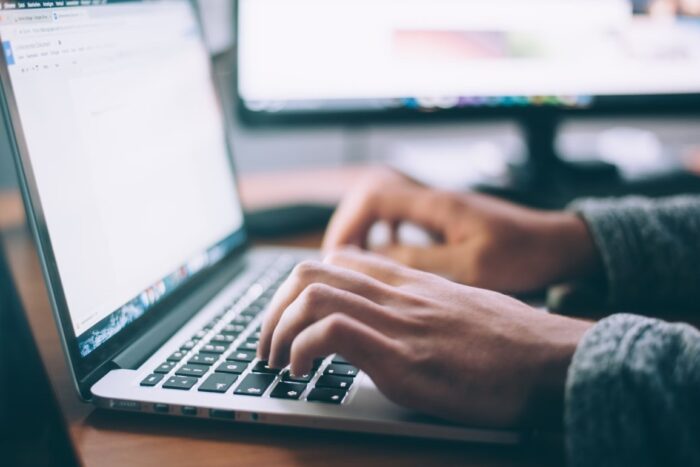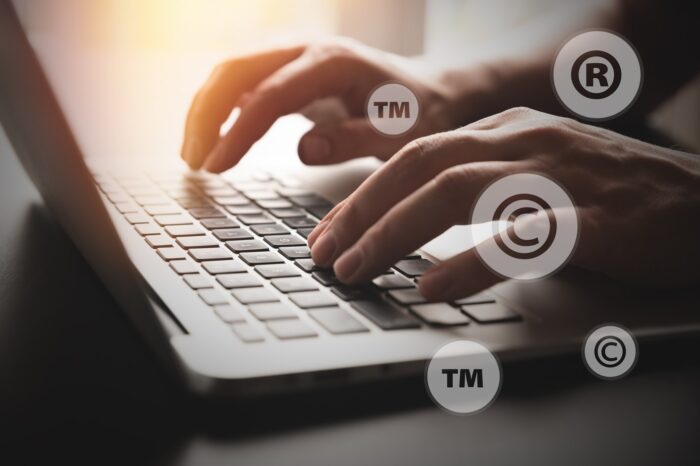11 Oct What are the risks of using third party design platforms to create a logo?
In the world of business, logos can play a vital role in establishing a company’s identity. It can become synonymous with the brand and even sometimes as valuable as the name itself. Think of Nike’s swoosh on its own. They don’t even need to use the brand name or tag line anymore to identify the brand. When it comes time to create a logo for your business, there are a few different options available to you. You can either create one yourself using online tools or software, hire a freelance designer, or use a third-party design platform. Using a third-party platform has advantages but does come with serious risks. What are the risks of using third party design platforms? In this post, we’ll take a look at some of the potential risks of using third-party design platforms and how to avoid them.
What is a logo and why is it so valuable for your business?
Your logo is your graphic mark, emblem, or symbol which identifies your company, organisation, product, or brand. A logo can communicate a company’s core values and convey its message to potential customers. A powerful logo can make a significant impact on a company’s bottom line and can become one of the most valuable assets for a business.
For example, Apple is one of the most well-known companies in the world, and its simple logo is a big part of that success. The bitten apple is instantly recognisable, and it has a strong connection to the company’s history (it was inspired by Alan Turing’s famous “apple” story). But more importantly, it is unique and simple. It is just a few lines and shapes, but it is powerful enough to be one of the most recognised logos in the world.
A well-designed logo can communicate a powerful message that resonates with consumers and sets a company apart from its competitors. In today’s competitive marketplace, a strong logo is essential to building a successful brand. When designing a logo, it is important to keep it simple and memorable. However, there are certain steps to ensure you own and have control over your logo, so you can protect and expand your brand with serenity.
What are the risks to be aware of when using designers or third-party platforms to create a logo?
Ownership
In today’s world of online business, third-party platforms which assist in logo creation are becoming increasingly popular. While there are many online options available that can create a logo for you, it’s important to be aware that you may not own the final product, that is – you may not own the underlying intellectual property rights. When you use a third-party platform to create your logo, you don’t necessarily own the logo exclusively either. The platforms usually grant you a licence to use the logo, however the question of ownership of copyright may be kept silent in their terms and conditions and that is deliberate. They effectively leave it to the parties to work it out themselves, so that they don’t get embroiled in legal battles.
Trade Mark requirements
One of the most common issues is that logos created through third-party platforms often fail to meet basic trade mark requirements. There are several case examples where companies or businesses did not own the copyright in their logo. An example of a case is Griggs Group Ltd & Ors v Evans & Ors ([2003] EWHC 2914. In this case the High Court found Evans, the designer, was the legal owner of copyright in the logo as there was no assignment of copyright to the advertising agency or Griggs.
Hidden costs
You might be tempted to use a free or low-cost logo design platform, but there can be hidden costs that will come back hurt you in the long run. Registering your trade marks for logos which you don’t own means taking the risk to lose your rights and incurring large legal fees as well if disputes arise – not mention potential damages! When purchasing your logo on the third-party platform, you may also be asked to pay a hefty fee to obtain the files and be assigned with the copyright ownership of the logo. In addition, if you ever want to change the logo or update it, you may again have to pay a fee to do so. While it may seem like you’re saving money up front, using a third-party platform for your logo can end up costing you more in the long run.
Someone else might have a similar logo to yours
There is a greater chance that someone else will have a similar logo to yours if you use a pre- made template. This can make it difficult for customers to remember your brand and could lead to confusion. Additionally, you may not have the same level of control over the final design if you’re working with a limited template. As a result, it’s important to weigh the pros and cons of using a third-party design platform before making a decision.
Key Takeaways
While using a third-party design platform can be an affordable and easy way to create a logo, there are some risks associated with this approach. It’s important to do your research before selecting a platform and to make sure you understand the licensing agreement or ownership assignment (if any).
If you’re looking for a professional logo that will represent your business well, it may be worth investing in a custom design from a qualified designer and obtaining assignment of the copyright ownership by way of Deed of Assignment. It is quite a technical area of law and the words of that assignment need to be specific and legally sound in order for that assignment to be legally correct and therefore have enforceable rights.
Our team of expert Intellectual Property Lawyers can assist with drafting a Deed of Assignment of Copyright and provide you with advice to make sure your logo is yours.
For trade mark and IP legal advice, please get in touch with us today via phone or the contact form on this page. Phone: 1800 820 083
Contact Us
Related Articles
- 01 February, 2024
- 18 January, 2024

Ian Aldridge is the Founder and Principal Lawyer Director at Progressive Legal. He has over 20 years experience in advising businesses in Australia and the UK. After practising in commercial litigation for 12 years in major Australian and International Law Firms, he decided to set up a NewLaw law firm in Australia and assist growing Australian businesses. Since 2014, he has advised over 5,000 small businesses in relation to Intellectual Property Law, Commercial, Dispute Resolution, Workplace and Privacy Law. He has strived to build a law firm that takes a different approach to providing legal services. A truly client-focused law firm, Ian has built Progressive Legal that strives to deliver on predictable costs, excellent communication and care for his clients. As a legal pioneer, Ian has truly changed the way legal services are being provided in Australia, by building Legal Shield™, a legal subscription to obtain tailored legal documents and advice in a front-loaded retainer package, a world-first. He has a double degree in Law (Hons) and Economics (with a marketing major). He was admitted to the Supreme Court of NSW in 2005.




